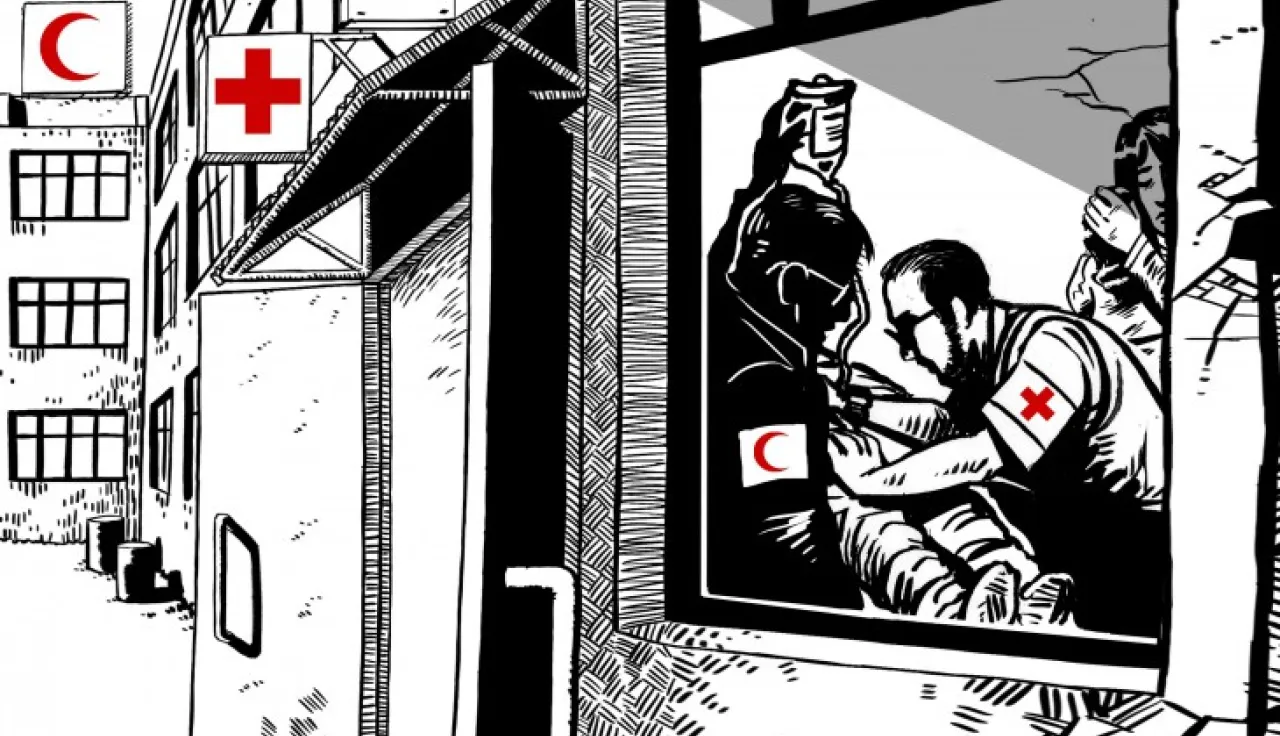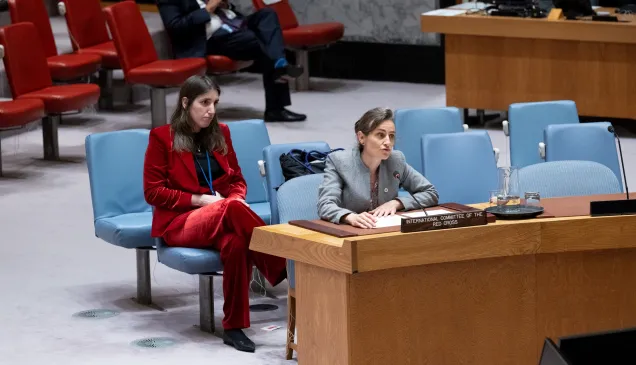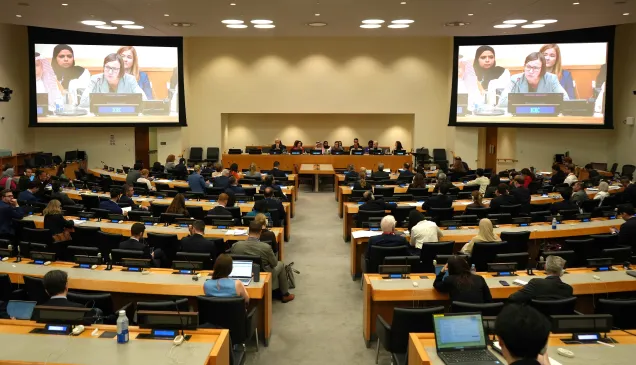Speech by ICRC president addressing attacks on health-care personnel, facilities and vehicles

Excellencies, Ladies and gentlemen, Dear colleagues,
We met in New York exactly 149 days ago, for the adoption of the resolution 2286, which many of us appreciated for its clarity in language, commitment to International Humanitarian Law (IHL) and design of concrete follow-up.
In the five months that have passed since then, attacks on health-care personnel, facilities and vehicles have certainly not ceased.
The situation in many countries remains deeply alarming: in Syria for instance, on all sides of frontlines, health facilities and personnel regularly come under fire or are forced to close due to heavy clashes. Just a few hours ago, the two largest hospitals in Aleppo were reportedly attacked. Patients were killed. Medical staff were injured. And all across the country, many hospitals are no longer functional, leaving injured people with little hope of getting life-saving medical assistance. The violence, the disruption of electricity and water supplies and the lack of medicines have severely jeopardized access to health care.
In Yemen, one quarter of all health services are reportedly either destroyed or shut down, in a time when there are more injured people than ever. Just over a month ago, an MSF supported hospital in Hajjah Governorate was hit, killing 19 people.
And this is just the tip of the iceberg. The list continues: Afghanistan, South Sudan, Central African Republic, Democratic Republic of Congo, Libya, etc.
Unfortunately, the trends described previously, continue unabatedly. Neither did the behavior of actors on the battlefield change over the last couple of months, nor were belligerents seen to factor the humanitarian consequences more prominently into their military decision-making: health systems continue to disintegrate under the cumulative impact of violence, leaving millions of people in highly fragile conditions.
If we have not seen progress on the battlefield, at least here in the United Nations, the community of States has resolved to work on this issue.
Firstly, the ICRC is pleased to see the leadership of this Council reaffirming the continued validity of international humanitarian law (IHL) as the universally agreed framework for the protection of the wounded and sick and the delivery of medical care in armed conflict. We must remain confident and demonstrate through our actions, that even in the most trying circumstances, IHL remains relevant and can make a difference for people bearing the brunt of war.
Secondly, specific recommendations and measures for the protection of health care in conflict are now integrated in official resolutions. At the Red Cross and Red Crescent International Conference, the resolution to protect health care in armed conflict was unanimously adopted. The Security Council unanimously adopted resolution 2286; 85 countries supported this. We now have a very solid foundation from which to promote such measures.
But obviously, much more concrete action is necessary.
The ICRC takes note with appreciation of the letter the UNSG addressed to member States following up the adoption of Resolution 2286 and delineating a clear road map for implementation. We appreciate having been consulted on the content of the letter and for the opportunity to input.
From our perspective, close to victims and negotiating humanitarian access with weapon bearers on all sides, and from the information collected through the Red Cross Red Crescent Movement's Health Care in Danger initiative, we believe that there are four areas where concrete measures must be taken:
First, on legislation:
1. States must strengthen domestic legislation protecting access to health care, as is their obligation under international law.
2. They must ensure that national laws recognize the role of first responders, often staff and volunteers from national Red Cross Red Crescent societies;
3. And States must do everything in their power to enforce existing legal sanctions so that they act as a deterrent.
Secondly, on data collection:
4. We encourage States and other relevant actors to set up national and international systems to collect and analyze data on the occurrence of violence against health-care personnel, facilities, medical transports and patients;
5. And convene multi-stakeholder meetings to regularly share challenges and good practices on preventing and addressing acts of violence against the delivery of health care.
Thirdly, on accountability, I ask you:
6. To ensure that acts of violence against the delivery of health care, which amount to a grave breach of the Geneva Conventions, are penalized as such in domestic legal orders.
7. We would like to see the strengthening of capacities to enable full, prompt, impartial, independent and effective investigations, ensuring enhanced accountability and addressing the grievances of victims.
And lastly, on preparedness and prevention, we ask States and other relevant actors to:
8. Adopt contingency plans in anticipation of situations that could jeopardize the organization and provision of assistance to the sick and wounded.
9. And to develop practical measures for armed forces to minimize disruptions to health care services during the planning and conduct of military operations and incorporate them into orders, rules of engagement, training and standard operating procedures and other relevant documents.
I would like to renew ICRC's offer today to build a more constructive relationship of deep operational engagement, feedback, dialogue and corrective measures with all parties to conflicts, on the conducts of hostilities. This may eventually contribute to re-establish trust amongst belligerents that the law is not only applicable because of the sanctions and accountability processes attached to it, but a useful and necessary tool in the interest of all.
In this perspective let me just make the following comment: I do understand and respect the role of this Council to offer political positions and orientations with regard to international peace and security. In dealing with the issue of international humanitarian law and its implementation though, the Council must factor into its reflections, the importance of trust, confidence and consensus amongst belligerents, which can best be promoted through neutral intermediaries, able to maintain the confidence of the parties to conflict. It is important therefore that, while united around this table today, we understand and respect our respective roles and responsibilities as political and humanitarian actors.
Excellencies, Ladies and gentlemen,
149 days ago, this Council took historic measures, and your presence today is a testimony of your commitment to the protection of patients and health care workers everywhere.
But meanwhile, men and women, girls and boys, doctors and nurses continue to run to the basements when they hear planes nearing. They continue to pull out their loved ones from the rubble of destroyed hospitals. They continue to fear armed men stopping their ambulances.
Much stronger engagement is needed to turn your commitment into a reality on the ground, to make a real difference for people suffering in wars. I urge you to continue to push.
Thank you.
Check against delivery



